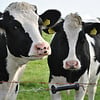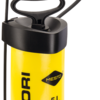Dukahorse
L- carnitine: its role in enhancing (athletic) performance
L -carnitine is essential for the fatty acid or glucose oxidation and is essential for transporting the fatty acids across the mitochondrial membranes in order to be make it suitable to be used for energy production. In addition, in plays a role in facilitating excretion of metabolites.1 Plant derived feeds are low or absent in L- carnitine and L- carnitine supplementation was shown to reduce the values of plasma lactate. This resulted in rapid recovery of blood glucose concentration after exercise2.
The proportion of free carnitine declines with increasing exercise intensity. In man and other animal species there is evidence that positive effects of oral supplementation on exercise performance result from longer duration of therapy and in trained individuals.
It would prevent training associated decrease of muscle L carnitine content, enhance muscle fatty acid oxidation and decrease glucose depletion rates. It reduces plasma lactate accumulation during exercise and consequently improves muscle fatique resistance2. Furthermore it prevents post exercise muscle damage and post exercise muscle soreness would be less3.
Also, its effect has been claimed in improving feed conversion and weight gain in growing horses4, and in improvement of sperm mobility5.
Already in 2002 it was shown that supplementation of daily 10 grams of L- carnitine during 5 weeks induced muscular adaptation: an increase in the fast type 2 fibres and increased ration capillary - to -fibre were shown. Thereby it had an additive effect on muscular responses to training, which should be favourable to improve athletic performance2,3.
References:
1Zeyner et al. Metabolic functions of L carnitine and its effect as feed additive in horses. A review. 1999. Arch Anim Nutr. 52,115-138
2Rivero et al. Oral L- carnitine combined with training promotes change in skeletal muscle 2002. Equine Exercise Physiology 6, Equine Vet J. Suppl.34, 269-274.
3Satt et al. Effects of daily astaxanthin and L- carnitine supplementation for exercise induced muscle damage in training Thoroughbred horses 2015. J. of Equine Veterinary Science 35, 836-842.
4Hausenblatz et al. Effect of L carnitine on some metabolic parameters in foals. 1996. Allattenyesz Takarmonyozas 45, 397-403.
5Herfen et al. The impact of L carnitine on sperm quality in stallions 1997. Reprod Domest Anim. 3,77.
6Harris and Rivero. Exercise- associated muscle disorders 2013. In: Equine applied and Clinical Nutrition. Health , welfare and Performance. Eds Geor Harris and Coenen.pp353-4.









 Rund
Rund
 Paard
Paard
 Schaap en geit
Schaap en geit
 Varken
Varken
 Hond
Hond
 Kat
Kat
 Gevogelte
Gevogelte
 Knaagdier
Knaagdier
 Stal en erf
Stal en erf
 Weideafrastering
Weideafrastering
 Ongedierte
Ongedierte
 Onderdelen
Onderdelen

